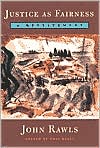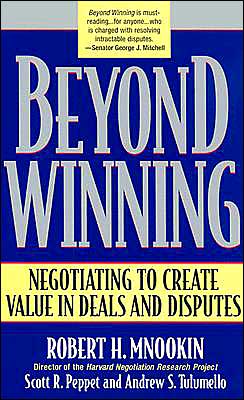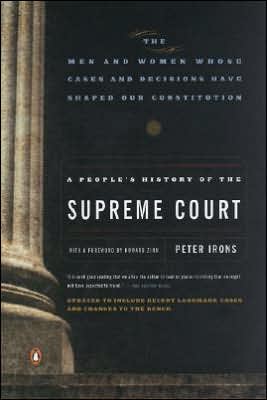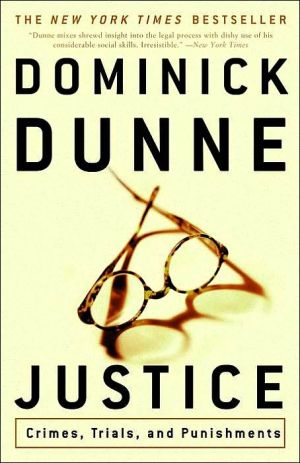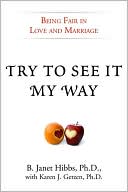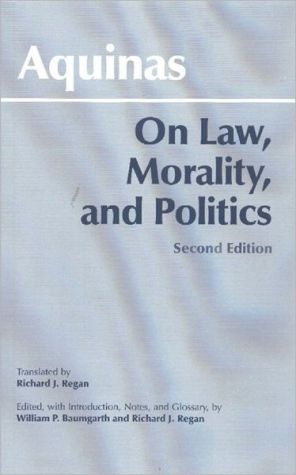Justice as Fairness: A Restatement
This book originated as lectures for a course on political philosophy that Rawls taught regularly at Harvard in the 1980s. In time the lectures became a restatement of his theory of justice as fairness, revised in light of his more recent papers and his treatise Political Liberalism (1993). As Rawls writes in the preface, the restatement presents "in one place an account of justice as fairness as I now see it, drawing on all [my previous] works." He offers a broad overview of his main lines...
Search in google:
This book originated as lectures for a course on political philosophy that Rawls taught regularly at Harvard in the 1980s. In time the lectures became a restatement of his theory of justice as fairness, revised in light of his more recent papers and his treatise Political Liberalism (1993). As Rawls writes in the preface, the restatement presents "in one place an account of justice as fairness as I now see it, drawing on all [my previous] works." He offers a broad overview of his main lines of thought and also explores specific issues never before addressed in any of his writings.Rawls is well aware that since the publication of A Theory of Justice in 1971, American society has moved farther away from the idea of justice as fairness. Yet his ideas retain their power and relevance to debates in a pluralistic society about the meaning and theoretical viability of liberalism. This book demonstrates that moral clarity can be achieved even when a collective commitment to justice is uncertain. Simon Blackburn - Times Literary Supplement There have been millions of words written about A Theory of Justice and many articles and several books by Rawls defending and expanding its doctrines. Justice as Fairness will almost certainly be the last of these, and it should take its place as the best and most comprehensive statement of Rawls's eventual position. It is an exemplary work in every way. Rawls's own virtues shine through. He follows the argument where it leads. He listens to his critics and acknowledges his supporters; he gives way when it is necessary, but remains firm where he can take a stand. Anybody convinced that political thought is all about disguised power, or rhetoric, or ideology in the bad sense of the word, should confront this book.
\ \ Chapter One\ \ \ PART I\ Fundamental Ideas\ \ \ §1. Four Roles of Political Philosophy\ \ \ 1.1. We begin by distinguishing four roles that political philosophy may have as part of a society's public political culture. Consider first its practical role arising from divisive political conflict and the need to settle the problem of order.\ There are long periods in the history of any society during which certain basic questions lead to deep and sharp conflict and it seems difficult if not impossible to find any reasoned common ground for political agreement. To illustrate, one historical origin of liberalism is the Wars of Religion in the sixteenth and seventeenth centuries following the Reformation; these divisions opened a long controversy about the right of resistance and liberty of conscience, which eventually led to the formulation and often reluctant acceptance of some form of the principle of toleration. The views in Locke's Letter on Toleration (1689) and Montesquieu's The Spirit of Laws (1748) have a long prehistory. Hobbes's Leviathan (1652)—surely the greatest work of political philosophy in English—is concerned with the problem of order during the turmoil of the English civil war; and so also is Locke's Second Treatise (also 1689). To illustrate in our own case how divisive conflict may lead to political philosophy, recall the extensive debates between Federalists and Anti-Federalists in 1787-88 over ratification of the Constitution, and how the question Of the extension of slavery in the years before the CivilWar called forth fundamental discussions of that institution and of the nature of the union between the states.\ We suppose, then, that one task of political philosophy—its practical role, let's say—is to focus on deeply disputed questions and to see whether, despite appearances, some underlying basis of philosophical and moral agreement can be uncovered. Or if such a basis of agreement cannot be found, perhaps the divergence of philosophical and moral opinion at the root of divisive political differences can at least be narrowed so that social cooperation on a footing of mutual respect among citizens can still be maintained.\ To fix ideas, consider the conflict between the claims of liberty and the claims of equality in the tradition of democratic thought. Debates over the last two centuries or so make plain that there is no public agreement on how basic institutions are to be arranged so as to be most appropriate to the freedom and equality of democratic citizenship. There is a divide between the tradition derived from Locke, which stresses what Constant called "the liberties of the moderns"—freedom of thought and liberty of conscience, certain basic rights of the person and of property, and the rule of law—and the tradition derived from Rousseau, which stresses what Constant called "the liberties of the ancients"—the equal political liberties and the values of public life. This overstylized contrast brings out the depth of the conflict.\ This conflict is rooted not only in differences of social and economic interests but also in differences between general political, economic, and social theories about how institutions work, as well as in different views about the probable consequences of public policies. Here we focus on another root of the conflict: the different philosophical and moral doctrines that deal with how the competing claims of liberty and equality are to he understood, how they are to be ordered and weighed against each other, and how any particular way of ordering them is to be justified.\ \ \ 1.2. I note briefly three other roles of political philosophy which we consider further as we proceed. One is that political philosophy may contribute to how a people think of their political and social institutions as a whole, and their basic aims and purposes as a society with a history—a nation—as opposed to their aims and purposes as individuals, or as members of families and associations. Moreover, the members of any civilized society need a conception that enables them to understand themselves as members having a certain political status—in a democracy, that of equal citizenship—and how this status affects their relation to their social world.\ This need political philosophy may try to answer, and this role I call that of orientation. The idea is that it belongs to reason and reflection (both theoretical and practical) to orient us in the (conceptual) space, say, of all possible ends, individual and associational, political and social. Political philosophy, as a work of reason, does this by specifying principles to identify reasonable and rational ends of those various kinds, and by showing how those ends can cohere within a well-articulated conception of a just and reasonable society. Such a conception may offer a unified framework within which proposed answers to divisive questions can be made consistent and the insights gained from different kinds of cases can be brought to bear on one another and extended to other cases.\ \ \ 1.3. A third role, stressed by Hegel in his Philosophy of Right (1821), is that of reconciliation: political philosophy may try to calm our frustration and rage against our society and its history by showing us the way in which its institutions, when properly understood from a philosophical point of view, are rational, and developed over time as they did to attain their present, rational form. This fits one of Hegel's well-known sayings: "When we look at the world rationally, the world looks rationally back." He seeks for us reconciliation—Versöhnung—that is, we are to accept and affirm our social world positively, not merely to be resigned to it.\ We shall be concerned with this role of political philosophy in several respects. Thus I believe that a democratic society is not and cannot be a community, where by a community I mean a body of persons united in affirming the same comprehensive, or partially comprehensive, doctrine. The fact of reasonable pluralism which characterizes a society with free institutions makes this impossible. This is the fact of profound and irreconcilable differences in citizens' reasonable comprehensive religious and philosophical conceptions of the world, and in their views of the moral and aesthetic values to be sought in human life. But this fact is not always easy to accept, and political philosophy may try to reconcile us to it by showing us the reason and indeed the political good and benefits of it.\ Again, political society is not, and cannot be, an association. We do not enter it voluntarily. Rather we simply find ourselves in a particular political society at a certain moment of historical time. We might think our presence in it, our being here, is not free. In what sense, then, can citizens of a democracy be free? Or as we shall ask eventually, what is the outer limit of our freedom (§26)?\ One can try to deal with this question by viewing political society in a certain way, namely, as a fair system of cooperation over time from one generation to the next, where those engaged in cooperation are viewed as free and equal citizens and normal cooperating members of society over a complete life. We then try to formulate principles of political justice such that if the basic structure of society—the main political and social institutions and the way they fit together as one scheme of cooperation—satisfies those principles, then we can say without pretense and fakery that citizens are indeed free and equal.\ \ \ 1.4. The fourth role is a variation of the previous one. We view political philosophy as realistically utopian: that is, as probing the limits of practicable political possibility. Our hope for the future of our society rests on the belief that the social world allows at least a decent political order, so that a reasonably just, though not perfect, democratic regime is possible. So we ask: What would a just democratic society be like under reasonably favorable but still possible historical conditions, conditions allowed by the laws and tendencies of the social world? What ideals and principles would such a society try to realize given the circumstances of justice in a democratic culture as we know them? These circumstances include the fact of reasonable pluralism. This condition is permanent as it persists indefinitely under free democratic institutions.\ The fact of reasonable pluralism limits what is practicably possible under the conditions of our social world, as opposed to conditions in other historical ages when people are often said to have been united (though perhaps they never have been) in affirming one comprehensive conception. Eventually we want to ask whether the fact of reasonable pluralism is a historical fate we should lament. To show that it is not, or that it has its very considerable benefits, would be to reconcile us in part to our condition. Of course, there is a question about how the limits of the practicable are discerned and what the conditions of our social world in fact are; the problem here is that the limits of the possible are not given by the actual, for we can to a greater or lesser extent change political and social institutions, and much else. However, I shall not pursue this deep question here.\ \ \ §2. Society as a Fair System of Cooperation\ \ \ 2.1. As I said above, one practicable aim of justice as fairness is to provide an acceptable philosophical and moral basis for democratic institutions and thus to address the question of how the claims of liberty and equality are to be understood. To this end we look to the public political culture of a democratic society, and to the traditions of interpretation of its constitution and basic laws, for certain familiar ideas that can be worked up into a conception of political justice. It is assumed that citizens in a democratic society have at least an implicit understanding of these ideas as shown in everyday political discussion, in debates about the meaning and ground of constitutional rights and liberties, and the like.\ Some of these familiar ideas are more basic than others. Those we use to organize and to give structure to justice as fairness as a whole I count as fundamental ideas. The most fundamental idea in this conception of justice is the idea of society as a fair system of social cooperation over time from one generation to the next (Theory, §1: 4). We use this idea as the central organizing idea in trying to develop a political conception of justice for a democratic regime.\ This central idea is worked out in conjunction with two companion fundamental ideas. These are: the idea of citizens (those engaged in cooperation) as free and equal persons (§7); and the idea of a well-ordered society, that is, a society effectively regulated by a public conception of justice (§3).\ As indicated above, these fundamental intuitive ideas are viewed as being
Editor's ForewordPrefacePt. IFundamental Ideas11Four Roles of Political Philosophy12Society as a Fair System of Cooperation53The Idea of a Well-Ordered Society84The Idea of the Basic Structure105Limits to Our Inquiry126The Idea of the Original Position147The Idea of Free and Equal Persons188Relations between the Fundamental Ideas249The Idea of Public Justification2610The Idea of Reflective Equilibrium2911The Idea of an Overlapping Consensus32Pt. IIPrinciples of Justice3912Three Basic Points3913Two Principles of Justice4214The Problem of Distributive Justice5015The Basic Structure as Subject: First Kind of Reason5216The Basic Structure as Subject: Second Kind of Reason5517Who Are the Least Advantaged?5718The Difference Principle: Its Meaning6119Objections via Counterexamples6620Legitimate Expectations, Entitlement, and Desert7221On Viewing Native Endowments as a Common Asset7422Summary Comments on Distributive Justice and Desert77Pt. IIIThe Argument from the Original Position8023The Original Position: The Set-Up8024The Circumstances of Justice8425Formal Constraints and the Veil of Ignorance8526The Idea of Public Reason8927First Fundamental Comparison9428The Structure of the Argument and the Maximin Rule9729The Argument Stressing the Third Condition10130The Priority of the Basic Liberties10431An Objection about Aversion to Uncertainty10632The Equal Basic Liberties Revisited11133The Argument Stressing the Second Condition11534Second Fundamental Comparison: Introduction11935Grounds Falling under Publicity12036Grounds Falling under Reciprocity12237Grounds Falling under Stability12438Ground against the Principle of Restricted Utility12639Comments on Equality13040Concluding Remarks132Pt. IVInstitutions of a Just Basic Structure13541Property-Owning Democracy: Introductory Remarks13542Some Basic Contrasts between Regimes13843Ideas of the Good in Justice as Fairness14044Constitutional versus Procedural Democracy14545The Fair Value of the Equal Political Liberties14846Denial of the Fair Value for Other Basic Liberties15047Political and Comprehensive Liberalism: A Contrast15348A Note on Head Taxes and the Priority of Liberty15749Economic Institutions of a Property-Owning Democracy15850The Family as a Basic Institution16251The Flexibility of an Index of Primary Goods16852Addressing Marx's Critique of Liberalism17653Brief Comments on Leisure Time179Pt. VThe Question of Stability18054The Domain of the Political18055The Question of Stability18456Is Justice as Fairness Political in the Wrong Way?18857How Is Political Liberalism Possible?18958An Overlapping Consensus Not Utopian19259A Reasonable Moral Psychology19560The Good of Political Society198Index203
\ Boston Book ReviewJustice as Fairness is a concise, self-contained, and up to date presentation of Rawls' views...While Justice as Fairness does not present any theoretical departures from Political Liberalism, it deals with important topics Rawls never fully addressed before such as Marx's critique of liberalism and the moral short-comings of welfare state capitalism...Rawls' long-time readers will also be pleased to find that Justice as Fairness includes careful replies to Sandel, Sen, Okin and other critics on issues ranging from health care to the legal status of gender differences.\ — Robert Briscoe\ \ \ \ \ \ ChoiceRawls is one of the two or three most important political thinkers of the 20th century. His accounts of 'justice as fairness' and of 'political liberalism' are among the most widely discussed and cited in the field of political philosophy...[Justice as Fairness] provides an integrated statement of his political theory, drawing together and presenting in a unified way, and for the first time, the major arguments and both strands of his work. Even though it is a challenging volume, it will no doubt be the principal introduction to his thinking...An essential text.\ — J. D. Moon\ \ \ \ Times Literary SupplementThere have been millions of words written about A Theory of Justice and many articles and several books by Rawls defending and expanding its doctrines. Justice as Fairness will almost certainly be the last of these, and it should take its place as the best and most comprehensive statement of Rawls's eventual position. It is an exemplary work in every way. Rawls's own virtues shine through. He follows the argument where it leads. He listens to his critics and acknowledges his supporters; he gives way when it is necessary, but remains firm where he can take a stand. Anybody convinced that political thought is all about disguised power, or rhetoric, or ideology in the bad sense of the word, should confront this book.\ — Simon Blackburn\ \ \ \ \ \ Library JournalRawls set out his contractualist conception of justice in A Theory of Justice and revised it in a later edition. From 1974 to 1989, he published articles whose theses varied somewhat from the detailed account of that work. In this self-contained attempt to reconcile the differences, he reorganizes his "original position" argument; revises his liberty principle to emphasize that there is not a single "liberty" that governments should aim at, but a set of liberties that ground citizens' powers to form and act from conceptions of justice and of a fully worthwhile life; and reanalyzes justice as fairness, so as to emphasize its political aspects. This book is the capstone to a half-century's deep thinking about its subject and will reward careful study. Recommended for most libraries. Robert Hoffman, York Coll., CUNY Copyright 2001 Cahners Business Information.\ \
